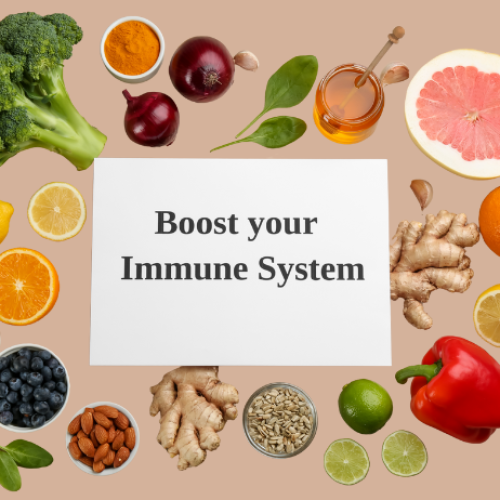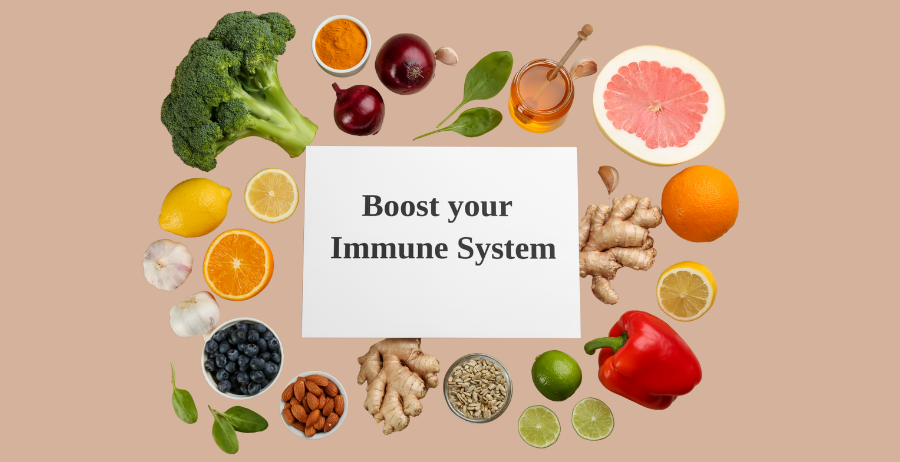Plant-based nutrition is all about focusing your diet on foods that come from plants. This means enjoying fruits, vegetables, whole grains, nuts, seeds, and legumes as the main parts of your meals. Many people choose plant-based nutrition because it’s known to be both healthy and sustainable. It provides your body with essential vitamins, minerals, and fiber, while also helping to lower the risk of chronic diseases like heart disease, diabetes, and certain cancers.
Eating plant-based doesn’t necessarily mean you have to give up meat or animal products entirely. Some people follow a vegetarian or vegan diet, while others simply try to include more plant-based foods in their meals. The key is to make plant-based foods the star of your plate, while keeping animal products to a minimum.
One of the biggest advantages of plant-based nutrition is that it’s rich in nutrients. Foods like leafy greens, beans, and nuts are packed with vitamins and minerals that are important for maintaining good health. For example, leafy greens like spinach and kale are high in iron and calcium, while beans and legumes are excellent sources of protein and fiber.
In addition to the health benefits, choosing plant-based foods is also better for the environment. Growing plants generally uses fewer resources like water and land compared to raising animals for food. This makes plant-based nutrition an eco-friendly choice that helps reduce your carbon footprint.
Overall, plant-based nutrition is a simple and effective way to improve your health and contribute to a healthier planet. By making small changes to include more plant-based foods in your diet, you can enjoy tasty, nutritious meals that are good for both you and the environment.
Table of Contents
ToggleThe Benefits of Plant-Based Nutrition for Weight Loss
Plant-based nutrition can be a helpful approach for those looking to lose weight in a healthy and sustainable way. One of the main reasons this diet is effective for weight loss is because plant-based foods tend to be lower in calories but high in essential nutrients. By focusing on fruits, vegetables, whole grains, and legumes, you can feel full and satisfied without consuming too many calories.
Foods that are rich in fiber, like vegetables and whole grains, play a key role in this process. Fiber helps you feel fuller for longer, which can reduce the urge to snack between meals or overeat. When you eat a diet rich in plant-based foods, you’re more likely to stick to a healthy calorie intake, making weight loss easier to achieve.
Another benefit of plant-based nutrition is that it’s naturally lower in unhealthy fats. Many plant-based foods contain healthy fats, such as those found in avocados, nuts, and seeds, which can support weight loss by improving your metabolism and helping you feel satisfied. These fats are different from the saturated fats found in many animal products, which can lead to weight gain and other health issues when consumed in excess.
Additionally, plant-based diets are often less processed compared to many traditional diets. Whole foods, like fruits and vegetables, are packed with nutrients and are free from added sugars and unhealthy fats, which are common in many processed foods. Eating less processed food can help reduce your calorie intake and improve your overall health.
In summary, plant-based nutrition is a great option for weight loss because it emphasizes nutrient-rich, low-calorie foods that help keep you full and satisfied. By focusing on whole, unprocessed plant foods, you can lose weight naturally while also improving your overall health.
Plant-Based Nutrition: Essential Nutrients and Sources
Plant-based nutrition provides many essential nutrients that are important for maintaining good health. By focusing on a variety of plant-based foods, you can easily meet your nutritional needs and enjoy a balanced diet.
One of the key nutrients in a plant-based diet is protein. While many people think of meat as the main source of protein, there are plenty of plant-based options. Foods like beans, lentils, chickpeas, tofu, and quinoa are all excellent sources of protein. These foods provide your body with the building blocks it needs for muscle repair and overall growth.
Another important nutrient is iron, which helps carry oxygen throughout your body. Dark leafy greens like spinach and kale, as well as legumes, lentils, and fortified cereals, are good sources of iron in a plant-based diet. To help your body absorb iron more effectively, you can pair these foods with vitamin C-rich options like oranges, strawberries, or bell peppers.
Calcium is essential for strong bones and teeth, and it can be found in plant-based sources like fortified plant milks (such as almond, soy, or oat milk), tofu, and leafy green vegetables like bok choy and broccoli. Including these foods in your diet helps ensure you get enough calcium without relying on dairy products.
Omega-3 fatty acids are important for heart health and brain function. While they are commonly found in fish, plant-based sources include flaxseeds, chia seeds, walnuts, and hemp seeds. These seeds and nuts can be easily added to smoothies, salads, or oatmeal to boost your intake of omega-3s.
Finally, vitamin B12 is a nutrient that is typically found in animal products, so it’s important for those following a strict plant-based diet to consider fortified foods or supplements. Fortified plant milks, cereals, and nutritional yeast are good sources of vitamin B12.
By including a variety of plant-based foods in your diet, you can easily get the essential nutrients your body needs to stay healthy and strong
Plant-Based Nutrition for Athletes: Fueling Performance
Plant-based nutrition can be an excellent choice for athletes looking to fuel their performance. By focusing on a variety of nutrient-rich plant foods, athletes can get the energy and nutrients they need to train hard and recover well.
Protein is a key nutrient for athletes, as it helps repair and build muscles after workouts. Plant-based sources of protein include beans, lentils, tofu, tempeh, quinoa, and chickpeas. These foods provide high-quality protein that supports muscle recovery and growth. Athletes can easily meet their protein needs by including these foods in their meals and snacks throughout the day.
Carbohydrates are another important part of an athlete’s diet, as they provide the primary source of energy for intense physical activity. Whole grains like brown rice, oats, and whole wheat pasta, as well as starchy vegetables like sweet potatoes, are excellent plant-based sources of complex carbohydrates. These foods release energy slowly, helping to sustain performance during long workouts or competitions.
Athletes also need healthy fats to support energy levels and overall health. Plant-based fats, such as those found in avocados, nuts, seeds, and olive oil, are rich in omega-3 and omega-6 fatty acids. These healthy fats help reduce inflammation and support heart health, which is crucial for endurance and recovery.
Vitamins and minerals are also essential for athletic performance. Leafy greens, fruits, nuts, and seeds are packed with vitamins like C and E, as well as minerals like magnesium and potassium. These nutrients help prevent muscle cramps, support immune function, and aid in recovery after exercise.
Lastly, hydration is vital for athletes, and plant-based diets often include foods with high water content, such as fruits and vegetables. Staying hydrated helps maintain energy levels and supports muscle function during exercise.
Overall, plant-based nutrition provides athletes with all the nutrients they need to fuel their bodies, perform at their best, and recover effectively. By including a variety of whole, plant-based foods in their diet, athletes can achieve optimal performance and maintain good health.
How to Transition to Plant-Based Nutrition Easily
Transitioning to plant-based nutrition can be simple and enjoyable with a few easy steps. Start by gradually adding more plant-based foods to your meals. You don’t have to change everything overnight. Begin by replacing one meal a day with a plant-based option, like oatmeal with fruits for breakfast or a vegetable stir-fry for dinner.
Focus on incorporating more fruits, vegetables, whole grains, and legumes into your diet. These foods are packed with nutrients and can be used in many delicious recipes. Try making your favorite meals with plant-based alternatives. For example, swap meat in tacos with beans or tofu, and use almond or soy milk instead of dairy milk.
Planning your meals in advance can make the transition smoother. Keep a variety of plant-based ingredients on hand, like beans, quinoa, nuts, and fresh produce. This will make it easier to prepare quick and healthy meals.
It’s also helpful to explore plant-based snacks. Nuts, seeds, fruit, and hummus with veggies are tasty and satisfying options that can keep you energized throughout the day.
By making these small changes, you can transition to plant-based nutrition easily and enjoy a healthier, more sustainable way of eating.
The Environmental Impact of Plant-Based Nutrition
Plant-based nutrition has a positive impact on the environment. One of the main benefits is that it reduces the use of natural resources. Producing plant-based foods, like fruits, vegetables, and grains, generally requires less water and land compared to raising animals for meat and dairy. This means that by choosing plant-based options, we help conserve water and protect land from overuse.
Another significant benefit is the reduction of greenhouse gas emissions. The production of meat, especially beef, is a major source of methane, a powerful greenhouse gas that contributes to climate change. By eating more plant-based foods, we can lower the demand for meat and, in turn, reduce the amount of greenhouse gases released into the atmosphere.
Plant-based diets also support biodiversity. Animal farming often leads to deforestation to create space for grazing and growing animal feed. This can harm wildlife and reduce the variety of plant and animal species. By choosing plant-based foods, we help protect forests and the animals that live there.
Overall, plant-based nutrition is a more sustainable way of eating that benefits the planet by conserving resources, reducing pollution, and protecting ecosystems.
The Environmental Impact of Plant-Based Nutrition
Boosting immunity through plant-based nutrition is a natural and effective way to support your body’s defenses. Plant-based foods are rich in vitamins, minerals, and antioxidants, which are key to maintaining a strong immune system.
Fruits and vegetables are packed with vitamin C, a nutrient known for its immune-boosting properties. Citrus fruits like oranges, lemons, and grapefruits, as well as vegetables like bell peppers and broccoli, are excellent sources of vitamin C. This vitamin helps protect the body from infections and supports the production of white blood cells, which fight off harmful bacteria and viruses.
Leafy greens like spinach and kale are rich in vitamin E, another powerful antioxidant that helps protect cells from damage and supports immune function. Nuts and seeds, such as almonds and sunflower seeds, also provide a good amount of vitamin E.
Whole grains, legumes, and seeds provide zinc, a mineral that plays a crucial role in immune health. Zinc helps the immune system work properly and can even speed up recovery from illness.
In addition, plant-based diets are often high in fiber, which supports gut health. A healthy gut is essential for a strong immune system, as it helps the body absorb nutrients and maintain a balance of good bacteria.
Overall, a diet rich in plant-based foods can strengthen your immune system and help keep you healthy by providing the essential nutrients your body needs to fight off illness.
Plant-Based Nutrition: Delicious Recipes to Try
Plant-based nutrition offers a wide variety of delicious recipes that are easy to prepare and full of flavor. These meals focus on using fresh, whole ingredients that are both nutritious and satisfying.
One popular recipe to try is vegetable stir-fry. Simply sauté your favorite vegetables, like bell peppers, broccoli, carrots, and snap peas, in a bit of olive oil and soy sauce. Add tofu or tempeh for protein, and serve over brown rice or quinoa for a hearty and healthy meal.
Chickpea curry is another tasty option. Cook chickpeas with tomatoes, onions, garlic, and a mix of spices like turmeric, cumin, and coriander. Serve this warm, flavorful curry over steamed rice, and garnish with fresh cilantro for an extra burst of flavor.
For breakfast, try overnight oats. Combine oats with plant-based milk, chia seeds, and a sweetener like maple syrup. Let it sit in the fridge overnight, then top with fresh fruit, nuts, or seeds in the morning for a quick and nutritious start to your day.
If you’re in the mood for something sweet, banana nice cream is a simple dessert. Blend frozen bananas until creamy, and add toppings like nuts, berries, or dark chocolate.
These recipes are just a few examples of how delicious and varied plant-based eating can be. Enjoy experimenting with different ingredients and flavors to find your favorites.
Long-Term Benefits of Plant-Based Nutrition
The long-term benefits of plant-based nutrition are significant and can lead to a healthier, longer life. One of the main advantages is a reduced risk of chronic diseases. Diets rich in fruits, vegetables, whole grains, and legumes have been shown to lower the chances of developing heart disease, high blood pressure, and type 2 diabetes. These foods are naturally low in unhealthy fats and cholesterol, which helps keep your heart and blood vessels healthy.
Plant-based diets are also linked to a lower risk of certain cancers. The high levels of antioxidants and fiber found in plant foods help protect cells from damage and support a healthy digestive system. Maintaining a healthy weight is easier on a plant-based diet since these foods are typically lower in calories and high in nutrients, which helps prevent obesity and related health issues.
Additionally, plant-based nutrition supports healthy aging. The vitamins, minerals, and other nutrients found in plant foods can help keep your skin, bones, and organs functioning well as you get older.
Overall, sticking to a plant-based diet offers numerous long-term health benefits, helping you feel better,
stay healthier, and potentially live longer.








